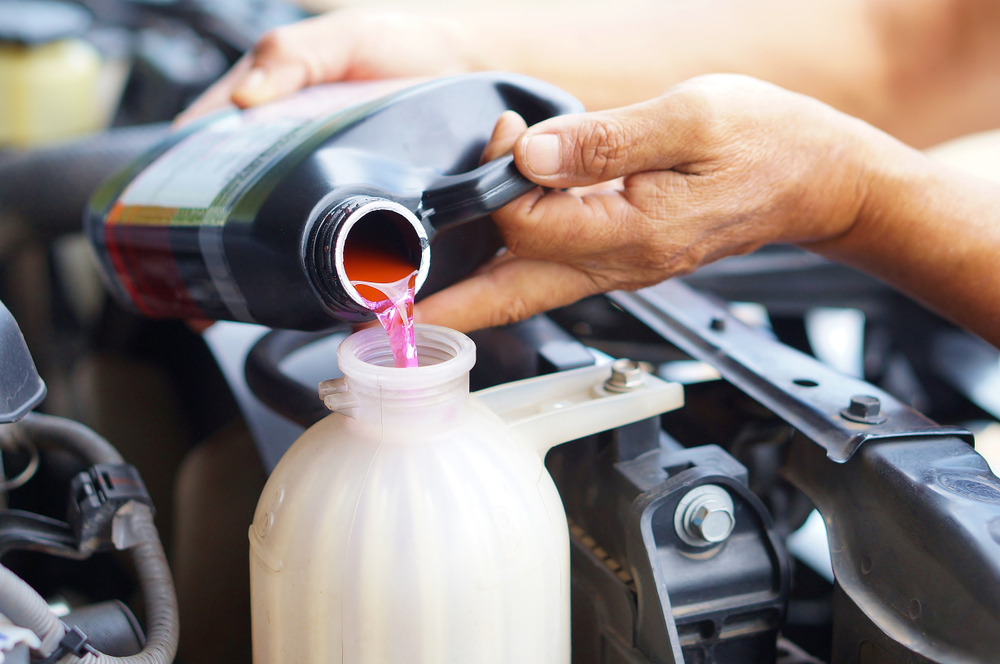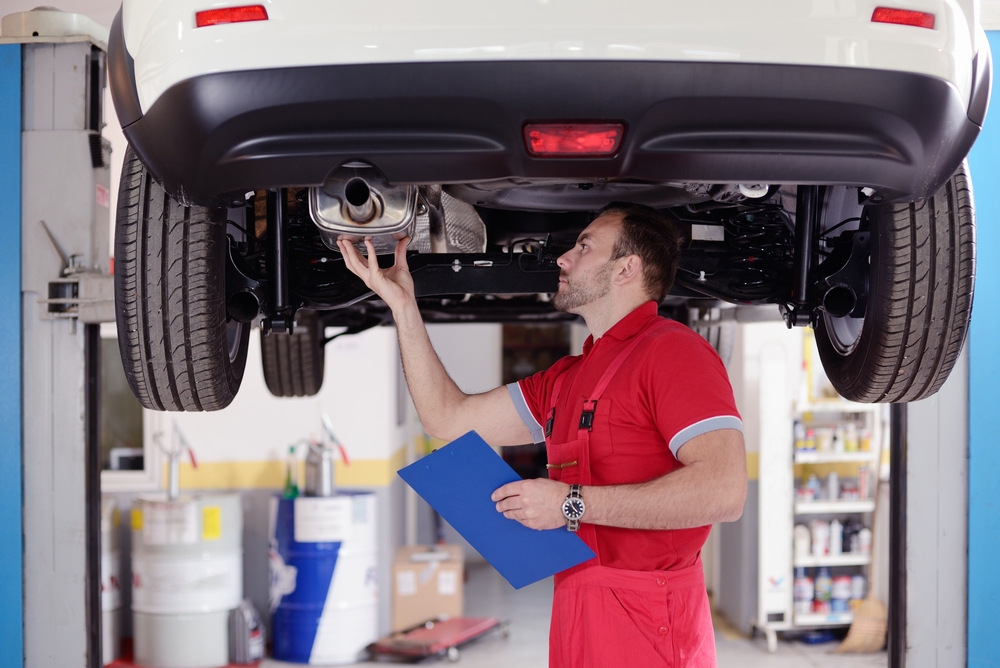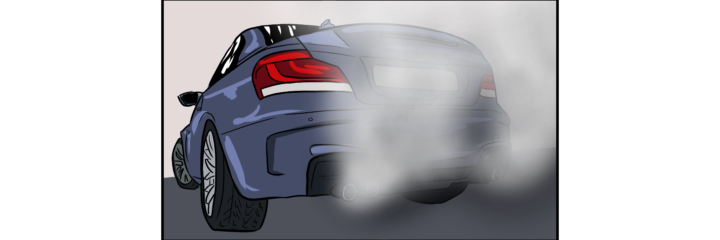Smoke in any form that originates from your car can be a major concern to any vehicle owner. When that smoke is white and coming from your exhaust, you may be wondering if there is a problem you need to address and how quickly to address it. However, you should know that white exhaust smoke is often problematic, potentially dangerous, and should be dealt with as soon as possible.
In this article, we will discuss when you should be the most concerned about white exhaust smoke, what causes it, when to see a professional, and all the other types of exhaust smoke you should be looking out for. Read on for all the information you need to know about this common car problem.
When to Worry About White Exhaust Smoke
Most days, you should not see any trace of exhaust emissions coming from your vehicle. Still, in the colder months, it’s not uncommon for you to see a thin white smoke emerging from your exhaust pipe. This is the result of water condensation and often not any cause for concern.
However, when you see white smoke coming from your exhaust that is thick and billowing, even on warm days, you may have a problem, especially if this smoke is accompanied by other concerning car symptoms.
Potential Causes of White Exhaust Smoke
Typically, when you see white exhaust smoke, it is due to coolant and water entering into the combustion chamber. As the coolant burns in the engine block, it produces the recognizable clouds of thick white smoke.
Coolant leaking and being burnt up in the exhaust indicates a serious problem that could be caused by a crack in the engine block or a blown or cracked head gasket. A crack in any of these areas, and in the coolant jacket, will allow coolant to leak into the combustion cylinders or engine block constantly; in addition to creating white exhaust smoke, this will cause the cooling system to run out of coolant, overheating the engine.
If you notice white exhaust smoke, you should treat it as the serious issue it is to prevent any damage being caused by your car’s engine overheating.
What Should You Do if You See White Exhaust Smoke?
If you see this type of smoke coming from your vehicle, you should not continue to use your car. Any time a gasket failure or crack occurs in the engine, it can be very dangerous and may completely ruin your engine if further contamination or overheating occurs.
The safest option is to stop using the car and try to diagnose the problem yourself, or to take your vehicle straight to a professional for assistance.

Can You Fix White Exhaust Smoke Yourself?
While it may technically be possible to fix white smoke coming from the car exhaust yourself, this is not recommended for most amateur car mechanics. Most of the issues that cause white exhaust smoke can only be confirmed by removing half the engine to properly see the block, something that is not easily done from a home set up.
Diagnosing the Problem
Though you may not be able to complete any serious repairs at home, it is possible to check to see if a leaking coolant is the culprit of your car issues. To do this, check the coolant levels in your car. If the level is low but you do not see any visible signs of leakage, it is likely that you have a head gasket leak or some kind of crack.
You could also invest in a detector kit that will help you determine if there is any type of contamination in your coolant.
When to See a Professional
In most cases of white exhaust smoke, you will need to see a professional to fully diagnose and remedy the issue. As soon as you notice white smoke, you should take your car to a mechanic to find the source of the issue; doing this will allow you to catch and treat the cause of the white smoke before it becomes worse or damages your engine further, potentially causing a more expensive repair.
What About Diesel Engines?
All of the symptoms of white exhaust smoke we talked about above are in regard to a regular gasoline engine. However, it is also possible for diesel engines to experience coolant leaking in the same way gasoline engines do.
Diesel engines can also experience white exhaust smoke when fuel passes through the engine and makes it to the exhaust without being burned. This can be caused by an engine that is too cool to burn fuel, faulty cylinder compression, defective fuel injectors or bad fuel injection timing, or clogged air filters, among other things.
With such a range of potential causes, it can be difficult to determine the exact reason for white smoke in a diesel engine, and you may need a full inspection from a mechanic to narrow down the issue.
Types of Car Exhaust Smoke to Look Out For
In addition to white exhaust smoke, there are several other colors of smoke you should keep an eye out for to make sure your car and engine stays in good condition.
Black Smoke
If your car is emitting black smoke from the exhaust, it typically means that you are burning fuel excessively. This can reduce the mileage of your vehicle and end up costing you more money as your car burns through more gas than it should.
There are several causes of black exhaust smoke, which include clogged fuel injectors, a clogged air filter, a damaged fuel pressure regulator, or a clogged fuel return line. This can be an expensive problem to deal with, so you should consider taking your car to a professional as soon as possible to effectively diagnose and fix the issue.
Blue Smoke
Blue smoke coming from your car’s exhaust is often a sign that your engine is burning oil. This can be a result of the valve guide’s seals or piston rings being worn out, letting oil leak into the combustion chamber, which then burns as you run your car.
In order to properly diagnose this issue, it can be helpful to check your oil and constantly monitor the oil consumption of your car. If you notice that the oil is in constant need of refilling, you likely have a serious leak that will need repair. On the other hand, a minimal leak could be handled simply by ensuring the oil is always at the correct level.
On turbocharged vehicles, blue smoke often means that the blower needs to be replaced or rebuilt.
An inspection by a professional can help you determine the exact cause of blue exhaust smoke.
Grey Smoke
Grey smoke is similar to white smoke in that the issue may be difficult to identify and fix, especially by yourself. Grey exhaust smoke can be caused by excessive oil consumption, a stuck PCV valve, a bad turbocharger, or an issue with the automatic transmission fluid.
These issues range from quick, cheap fixes to more complex repairs, so it is important to get your vehicle issues diagnosed as soon as you notice grey exhaust smoke coming from your vehicle.
Preventing Issues Before They Occur
Sometimes it’s not possible to prevent an issue that causes white smoke, or any other type of smoke, before it occurs. However, keeping up a regular maintenance schedule that includes oil changes and tune-ups can be incredibly beneficial in helping you to catch preventable issues and in diagnosing problems before they get too serious. This, in turn, may help you identify any engine issues that can contribute to car exhaust smoke.
For best results, try to examine the essential parts of your car like fluid levels, brake pads, and the various parts of the engine, every time you get an oil change. This keeps you on a regular maintenance schedule that will benefit both you and your wallet, as car issues caught early are usually less expensive to remedy.

Maintaining a Safe Vehicle
Seeing a large amount of white smoke coming from your car exhaust can be a scary thing, but it is not an issue without a solution. If you happen to see white smoke, or any other kind of smoke, coming from your car exhaust, the best thing you can do is take your vehicle to a professional in order to diagnose and fix the problem.
In these situations, quick action will lead to less costly repairs and help you maintain a safe, smooth-running vehicle.


